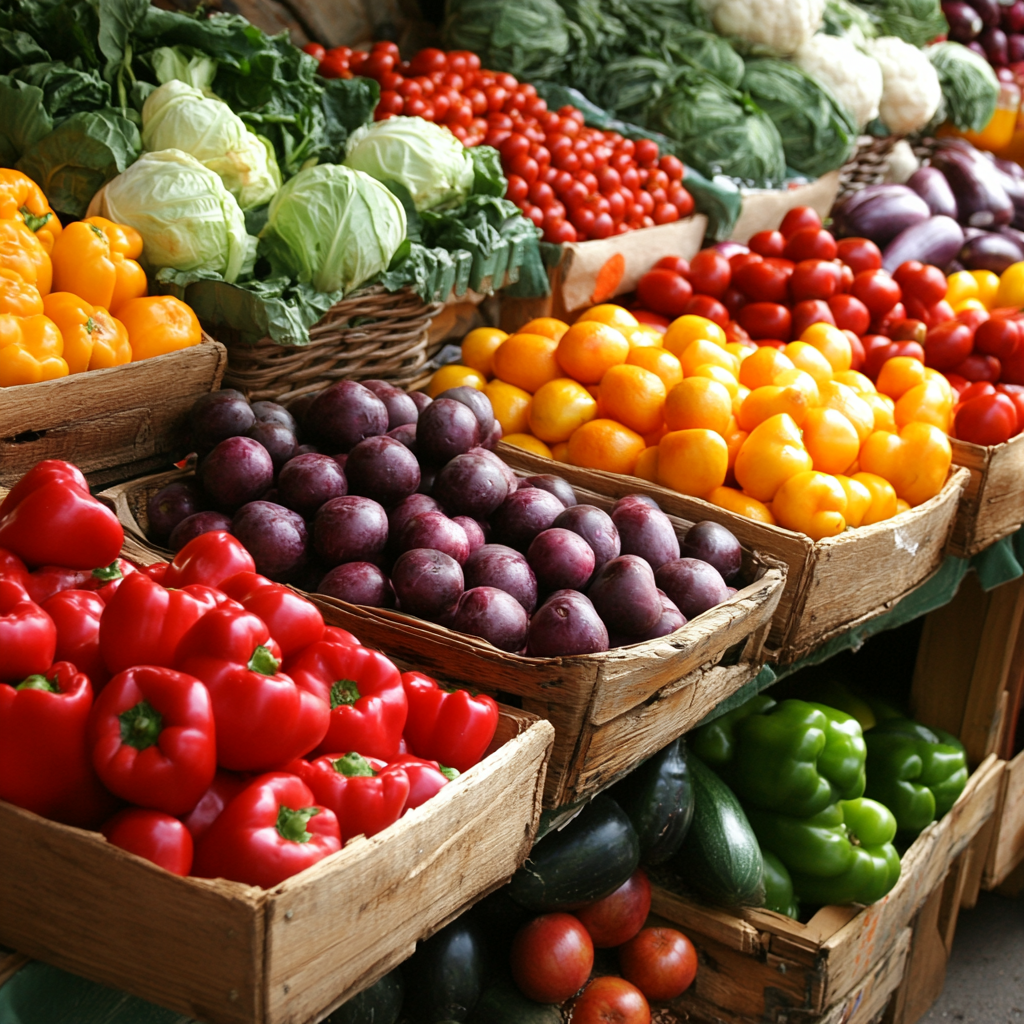Organic food has become more and more popular over the past few years as more people pick it in line with their healthy lifestyle choices. Many are left wondering, though, given the more costly price tag connected with organic products: is it really worth the investment? The advantages of organic food and if the expenditure in organic products is justified are investigated on this site.
What Is Organic Food?
Organic food is grown and processed without the use of synthetic chemicals such as pesticides, fertilizers, and genetically modified organisms (GMOs). Organic farming practices emphasize sustainability, soil health, and the well-being of animals. Organic products include fruits, vegetables, grains, dairy, and meat that meet specific standards set by certification bodies, such as the USDA Organic seal in the United States.
Nutritional Benefits of Organic Food
- Less Pesticides and Chemicals: People select organic food mostly in order to prevent synthetic pesticide and chemical exposure. Chemical pesticides are frequently used in conventional farming to guard against pests and illnesses of crops. These compounds can leave residues on the produce, which could be consumed, even when they help in raising yield. Conversely, organic farming produces food with less chemical residue by use of natural approaches to control pests and diseases.
- Enhanced Nutrient Content: Certain research imply that organic foods might have more of some nutrients than meals produced conventionally. Studies have indicated, for instance, that organic fruits and vegetables may include more antioxidants— molecules that shield the body from damage done by free radicals. Higher omega-3 fatty acids—which are good for heart health—are also claimed to be present in organic milk and beef.
- No GMOs: Organic food is GMO-free, meaning it is not produced from crops that have been genetically modified. GMOs are often engineered to be resistant to pests or herbicides, but their long-term effects on health and the environment are still debated. By choosing organic, consumers can avoid these genetically modified ingredients.
Environmental Benefits of Organic Farming
Organic agricultural techniques are meant to be more ecologically benign and sustainable. To keep soil fertility and integrity, organic farmers apply techniques include crop rotation, composting, and natural insect management. Essential for a healthy ecosystem, these behaviors assist to lower soil erosion, preserve water, and encourage biodiversity.
Conventional farming mostly depends on manmade chemicals that might run off into neighboring water bodies and affect the aquatic life. By using less of these chemicals, organic farming lessens environmental damage. Supporting organic farming lets consumers help to lower the pollution generated by more traditional agricultural methods.
Organic agricultural criteria also apply to the handling of animals. Raised in more compassionate environments with access to outdoor areas and organic feed, organic animals are Common in conventional farming, antibiotics or growth hormones are not administered to animals. This method guarantees not only improved animal wellbeing but also free from dangerous additions products.
Health Benefits of Organic Food
Conventional farming makes use of antibiotics frequently to encourage development and prevent sickness in cattle, therefore lowering risk of exposure to antibiotic-resistant bacteria. This extensive use of antibiotics can help to create antibiotic-resistant bacteria, therefore endangering public health. Antibiotics are forbidden in organic farming, therefore lowering the possibility of contact with these resistant bacteria via the food chain.
Organic food tastes better, according to many people, than food cultivated conventionally. This may be so because organic agricultural methods give soil health top priority, therefore improving the taste and quality of output. Organic food also usually fresher since it usually travels less distances from farm to table, hence maintaining its taste and nutritional worth.
Although studies on the direct health advantages of organic food are still under progress, some indicate that using organic products could reduce the risk of specific medical diseases. For instance, the lower chemical and pesticide exposure in organic food could help to lower some cancer and other chronic illness rates. Moreover, the higher nutritious value of organic food might help to improve general health.
The Cost Factor: Is Organic Food Worth It?
One of the most significant barriers to choosing organic food is the cost. Organic products are often more expensive than their conventional counterparts due to the more labor-intensive farming practices, lower yields, and the cost of organic certification. However, many consumers are willing to pay the premium for the perceived benefits.
Prioritizing Organic Purchases: If the cost of going completely organic is a concern, you can prioritize which organic foods to buy. The Environmental Working Group (EWG) releases an annual list called the "Dirty Dozen," which identifies fruits and vegetables with the highest levels of pesticide residues. By focusing on buying these items organically, you can reduce your exposure to harmful chemicals without significantly increasing your grocery bill.
Buying in Bulk and Seasonally: Purchasing organic food in bulk or during its peak season can help reduce costs. Farmer's markets and community-supported agriculture (CSA) programs are also great options for sourcing organic produce at a lower price.
Weighing the Long-Term Benefits: When considering the cost of organic food, it's essential to weigh the long-term benefits. Investing in organic food may lead to better health outcomes, reducing medical expenses in the future. Additionally, supporting organic farming practices contributes to a healthier environment, which benefits everyone in the long run.
Conclusion
Organic food offers several benefits, including reduced exposure to pesticides, better taste, and a positive impact on the environment. While it comes at a higher cost, the investment in organic products can be justified by the potential health benefits and the support of sustainable farming practices. Ultimately, the decision to go organic depends on individual priorities, budget, and lifestyle. By making informed choices and prioritizing certain organic foods, you can enjoy the benefits of organic living without breaking the bank.
